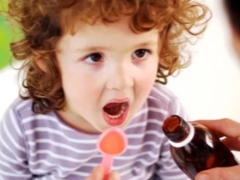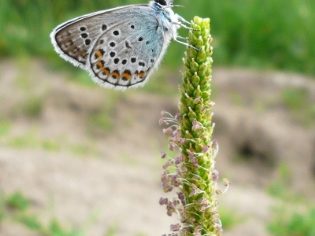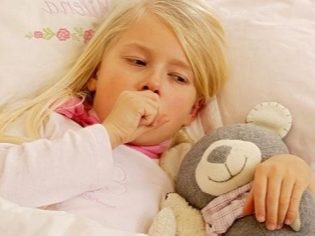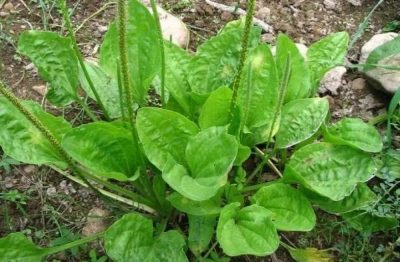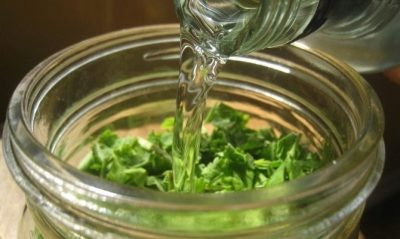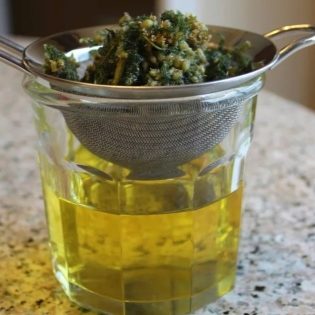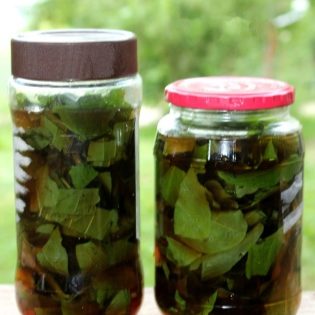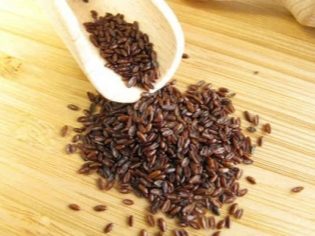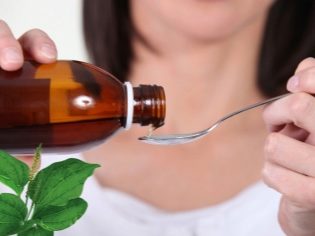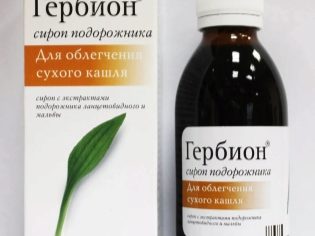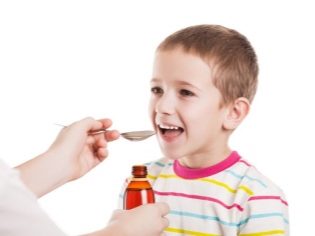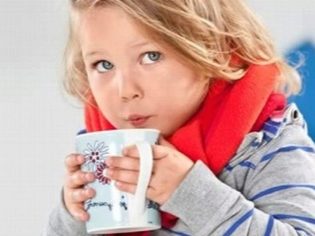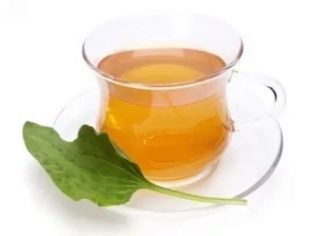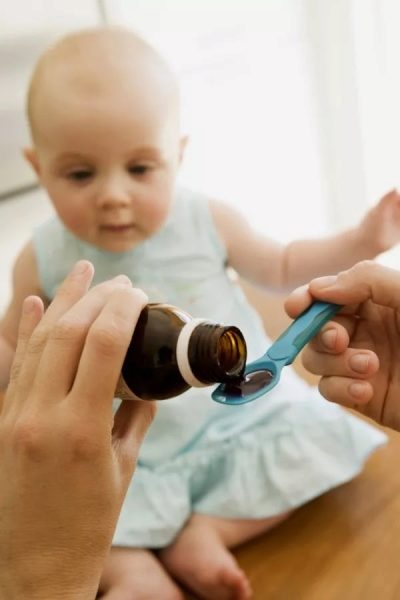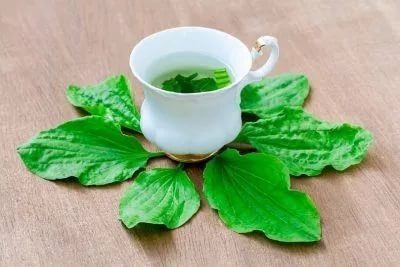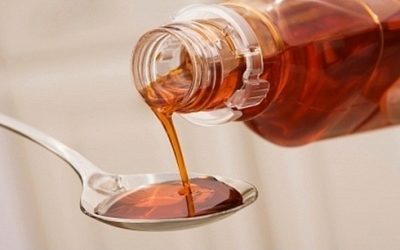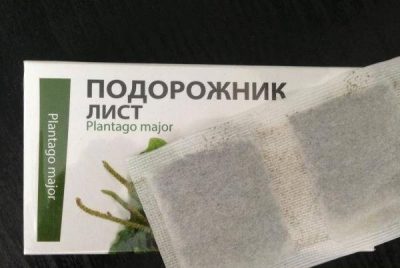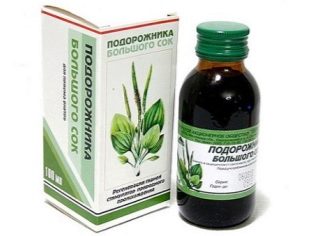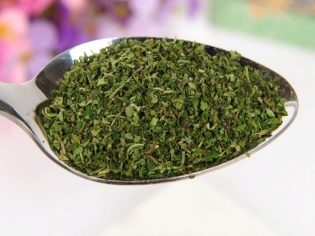The use of plantain in the treatment of children
In my childhood there were moments when the plantain literally saved me and my peers. When I really wanted ice cream, my friends and I collected this plant and carried it to the pharmacy. There, our prey was weighed and given for it 10-20 kopecks (the money for the children of the mid-80s is quite decent!).
Only many years later it became clear why pharmacists so willingly took the leaves of this seemingly unsightly plant. The fact that the plantain is part of many medicines, fees. This is an excellent cough remedy. In this article we will talk about plantain and children, and more specifically, how this plant is used to treat babies.
Interesting Facts
Growing along roads and paths (hence the name), plants with large, wide leaves are unexpectedly diverse: there are about one hundred and fifty species of plantains in the world, but from the point of view of medicine, only a few are valuable. These include the big plantain and flea.
In Europe, it is eaten, adding to salads as greens. This is a deer plantain.
Representatives of this botanical species growing in Russia are one of the favorite delicacies of many butterflies.
Flea plantain is used in the manufacture of fabrics, printing inks, ice cream and as a mild narcotic.
And certainly the mystery of nature: plantain is considered the most common weed, but many of its varieties are listed in the Red Book.
Medicinal properties and contraindications
Plantain has hemostatic properties, anti-inflammatory effect, as well as analgesic and antiseptic effects. This herb produces so many tannins that its content can be compared, for example, with the bark of oak. The plant is considered to be a strong immunostimulant of natural origin.
Plantain helps to get rid of cough, as in acute respiratory disease, and with more serious diagnoses - pulmonary tuberculosis, bronchial asthma, whooping cough, pleurisy.
The plant copes with a number of diseases of the stomach and intestines, including ulcers. In addition, both informal and traditional medicine recognize this herb with large leaves as an effective remedy for bladder diseases and skin problems.
In medicine, use all the parts of the plantain - leaves, roots, stems and seeds. Each part of the plant contains a special set of substances.
Plantain can be taken for treatment and adults and children. But in some situations, the use of this plant is better to refuse. Contraindications apply to those who have a peptic ulcer of the stomach or intestines is in the acute stage, people who are allergic to herbal ingredients, those who have increased blood clotting and accelerated thrombosis.
Doctors tend to talk about the age limit for child consumption - most popular cough prescriptions with this medicinal plant are intended for children 3 years and older. Externally (for the treatment of skin problems) can be used for children who are already one year old. From the same age, however, with caution, it is allowed to give the child pharmacy plantain syrup.
Instructions for use
As already mentioned, this plant is unquestioningly accepted by both traditional medicine and traditional healers. In pharmacies, you can find a lot of drugs in which the main active ingredient is plantain. It is well known «Herbion» - syrup from dry and unproductive cough, syrups "Mukoplant" and "Natur product", which are intended for the treatment of wet cough, when it is necessary to have an expectorant effect and help the child to get rid of sputum in the bronchi as soon as possible.
Plantain juice sell for patients with intestinal, stomach and urinary tract diseases.
Mukofalk granules with plantain intended for the treatment of rectal cracks and intestinal dysfunctions.
In addition, on the pharmacy stalls, you can also find herbal preparations, which include plantain, and separately this plant, harvested, processed and dried, prepacked in cardboard boxes.
Children can prepare medicines from this plant and at home.
From the finished pharmaceutical collection can be made decoction, infusion and syrup.
Syrup. You will need fresh leaves of the plant and sugar. Take a half-liter jar and put some leaves on the bottom, sprinkle with sugar, then fold the plantain leaves again, and again pour it with sugar until the moment you reach the neck of the jar. Then close the jar, put it in a dark and cool place, and keep it there for about 90 days. Then the resulting syrup can be drained, stored in the refrigerator for no more than 8-9 months.
Infusion. For the preparation of this tool, you can take both fresh leaves and dried medicinal raw materials. Two tablespoons of finely chopped plantain leaves a couple of slices of lemon and a teaspoon of honey. The leaves are brewed with boiling water, squeezed lemon slices into the resulting liquid. Insist about an hour, and then filter and add a spoonful of honey.
Decoction. It's all pretty simple. The leaves and seeds of plantain in the amount of 2 teaspoons should be boiled with boiled water, which has previously been cooled to 90 degrees. Then hold the container with the liquid in a water bath for about 15 minutes. The resulting tool is a strain, and give a drink when you cough or add to the tea to the child. The decoction can be added to the water for bathing, if there are skin diseases.
Dosage and indications
When coughing syrup, children can be given at a dosage not exceeding 2.5 ml at a time no more than four times a day. Starting from 6 years, the dosage can be increased to 3.5 ml, from 12 years, children can take from 5 ml at a time.
Children suffering from atopic dermatitis, a tendency to allergies or diabetes should not be given psyllium in syrup. For treatment it is better to choose another form, for example, a decoction.
Broth when coughing can be given to a child several times a day, 2 tablespoons at an early age and a quarter cup at a time from the age of 5 years. The decoction and infusion of plantain can be given to drink with cystitis (inflammation of the bladder), as well as to improve the immunity of the child, whose natural protection of the body has suffered as a result of a long illness.
Teas with plantain decoction can be given to a child not more than twice a day for the treatment of intestinal diseases. Drinking should be warm, to eliminate the bitter taste, you can add some fresh berries to tea viburnum, black currant or a slice of lemon and half a teaspoon of sugar.
Plantain juice, which is sold in pharmacies in glass bottles of 100 ml, it is convenient to use and store, it does not require any preliminary preparations. You can give it in case of diseases of the stomach and intestines in a teaspoon, spreading it with plenty of water 20 minutes before meals several times a day.
It is good to treat cough in case of respiratory infections with the use of the same pharmaceutical drops. Children should be given no more than a teaspoon three times a day after a meal after 15 minutes.
In case of skin diseases, plantain juice can be added to the water for bathing the child, as well as making compresses, lotions with the preparation directly on the affected skin. Change them every 2 hours.
Price
Preparations with plantain and raw materials themselves are inexpensive.
Such treatment may well be considered budget:
Herbion syrup - 200-230 rubles.
Plantain juice - 147-160 rubles.
Plantain leaves in a cardboard box - 60-65 rubles, in filter bags - about 70 rubles.
Reviews
Moms and dads about the plantain and preparations containing it, speak mostly positively. There is quite a pleasant taste and rapid medicinal effects. However, some funds have a significant disadvantage - they are quite expensive. This does not apply to the above preparations. But, if you want to buy a Mukoplant cough (syrup) for a child from coughing, then the cost of such a medicine starts from 850 rubles, although the composition includes the same familiar and familiar plantain.
Many parents prefer to buy ready-made pharmacy drugs, fans of preparing decoctions and tinctures on their own are not so much. Many advise this herb to prepare solutions for inhalation with influenza and acute respiratory viral infections, according to moms, this is an excellent general tonic.
